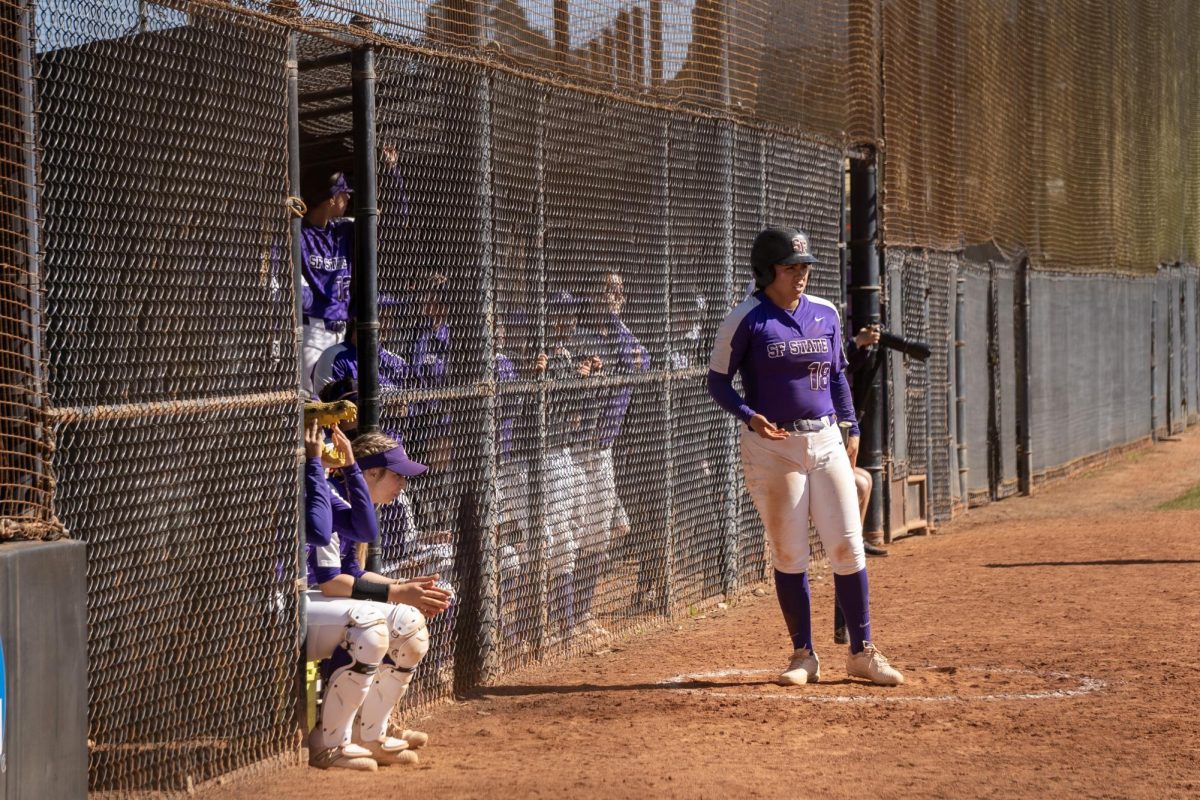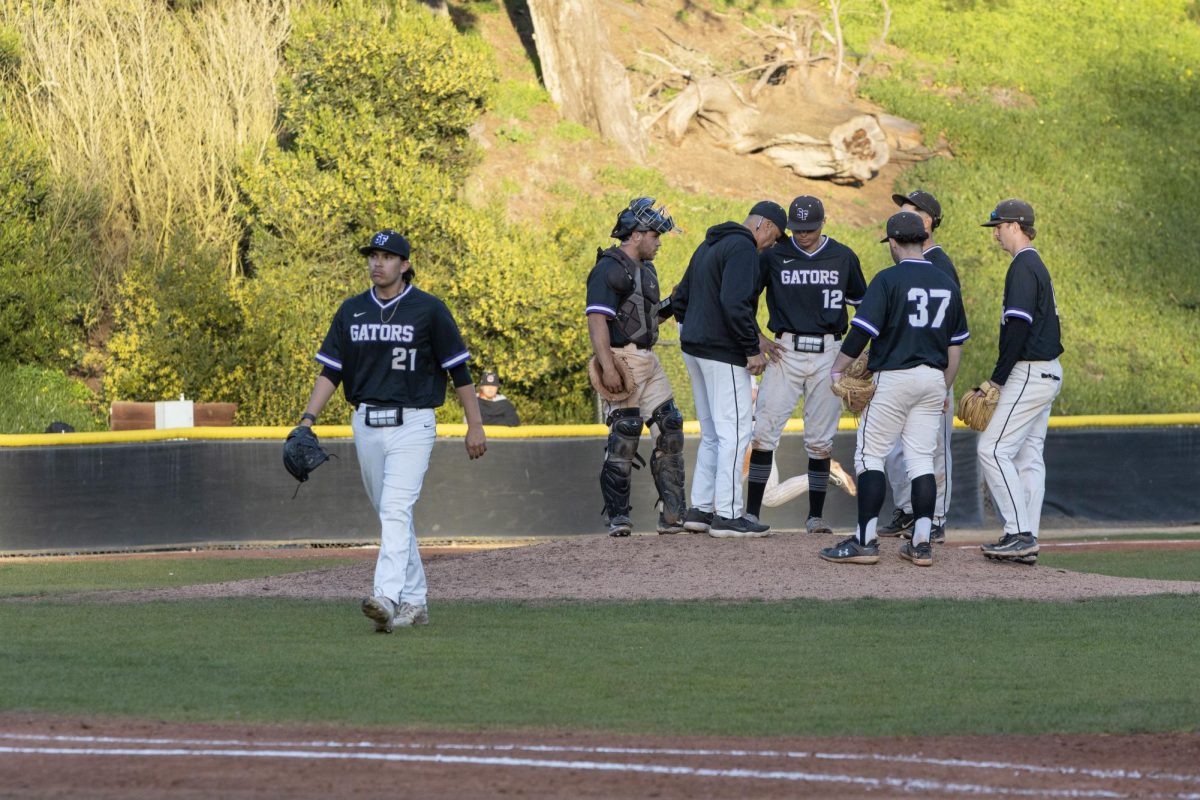The hour hand and minute hand meet at the apex of the clock. It’s another 12 o’clock practice.
12 a.m., that is.
For SF State’s ice hockey club, this is one of several obstacles that must be dealt with in order to maintain their team.
“Hockey’s a really expensive sport as it is, which is why we’re out here at midnight,” said Brian Lu, treasurer of the club. “It’s the only ice we can really afford. Since I work here they give us a pretty good discount.”
The “here” Lu referenced is the Yerba Buena Ice Skating Center. The community rink in downtown San Francisco is where the Gators practice on Thursday and Sunday nights, and it serves as the location for most of their home games.
“I know (UC) Berkeley pays up to like $1,000 an hour for practice time. We pay $200,” Lu said.
Without any funding from the school, the players fund the team fully out-of-pocket, with each member having to provide roughly $1,500, according to Lu. The money covers the rink rental, referees, travel costs and all other expenses the team may accrue.

The members voiced their frustration over the lack of support from the University, but their tones were void of hostility. They’ve accepted their reality, and they do everything in their power to keep the club running. Recruiting is currently at the top of that list.
“A couple years back we had a lot more players, maybe like 18 to 20 guys, so funding wasn’t as difficult,” said Collin Finegan, president of the club. “But it’s getting to that point where a lot of our players are at the point of graduation, so about half our team is leaving.”
Publicity is the most glaring issue for the club.
“Every time I mention it in my communication class or something that I play ice hockey, I always get a ‘Oh, you guys have a hockey team?’” Finegan said.
Finegan, a junior, said that he “basically played hockey before [he] could walk,” and even he wasn’t even aware of the team until right before the start of his freshman year.
Jessie Dzuranyi, a marketing major, is the club’s marketing manager. After gaining access to the Instagram account in October 2017, she has nearly tripled their amount of followers by liking and commenting on pictures, posting frequently, using relevant hashtags, and following other SF State and hockey-related accounts. Dzuranya found Instagram useful for connecting with peers and supporters, but she said, “We’ve had people reach out to our Facebook page inquiring about details on how to join.”
That’s how Ryan McNulty, a business administration major, found out about the club when he transferred to SF State this past fall. Finegan responded to his inquiry, invited him out to a practice and McNulty became a member of the team shortly after.
“I’m really close with all the guys, even though I’ve only been here for a semester and a half,” McNulty said.
Camaraderie and passion have driven the team to push through adversity, which hit again when they lost their coach right before this season’s first practice.
“It is tough not having a coach, but I think at the same time it’s really built a trust between us because we all have to trust each other to do our part,” McNulty said. “We don’t have a coach that’s watching the whole time, telling us, ‘You’re doing this wrong, switch this line.’ We really rely on one another. I think that’s helped us grow a lot.”
Along with a void at head coach, the team is working with a lack of roster depth. Although it could be a burden, McNulty sees a silver lining.
“Since we’re a short team, each person gets a lot of ice time,” he said. McNulty appreciates the heavy playing time, because he said it helps him get better quicker.
Gordon Riley, a night manager at the ice skating center, said he’s seen the team improve during the couple years he’s been there. “I’ve seen a few games here, and they’ve got a lot of energy,” Riley said. “And it’s tough because it’s full-contact. The adult leagues we have here are non-contact, there’s no checking. These boys are doing a checking game, which is entirely different.”
The guys take the game seriously, but they use their time on and off the ice to bond and relax as well.
“When we’re out here, you kinda just forget about everything going on,” Finegan said. “It’s gets you away from everything else. It’s a great way to relieve stress.”
“We’re all pretty tight-knit, we’re all friends,” Lu said. “And it’s a very unique similarity, with hockey, that we have. You don’t find too many hockey guys out here, so when you find some, it’s pretty cool to stay close to them.”






